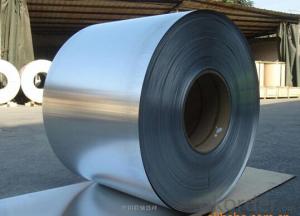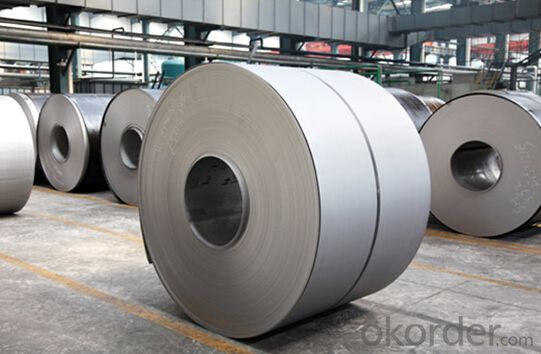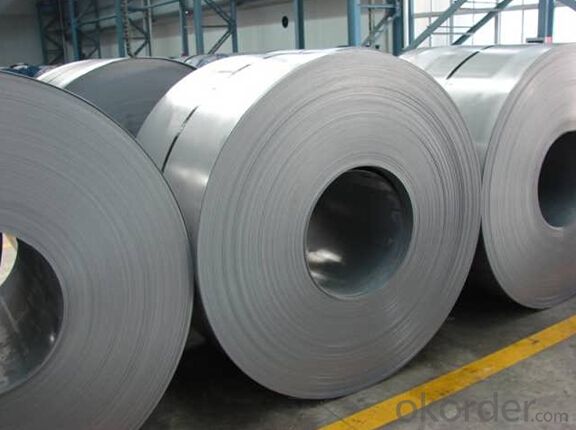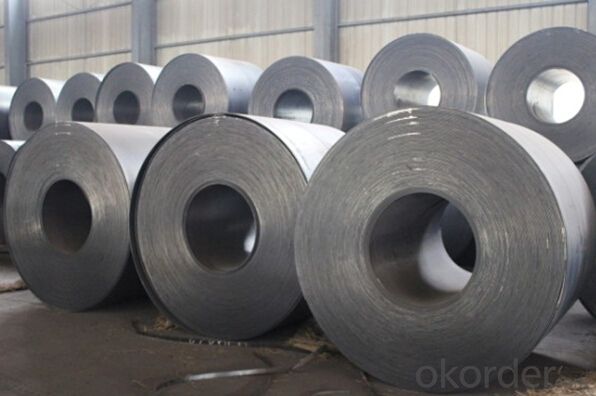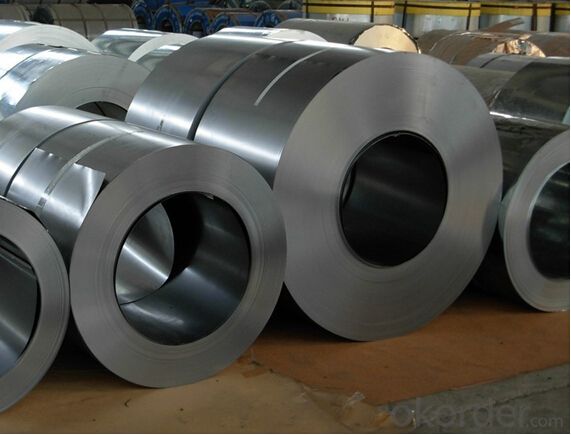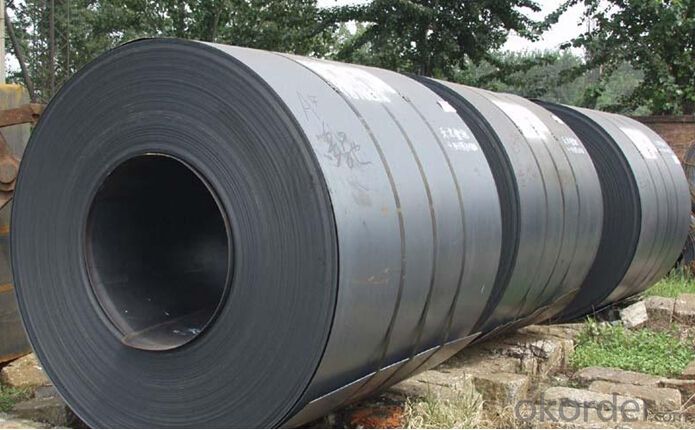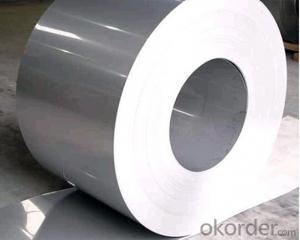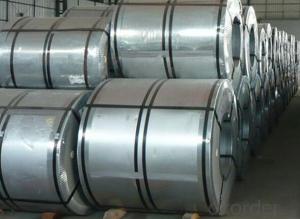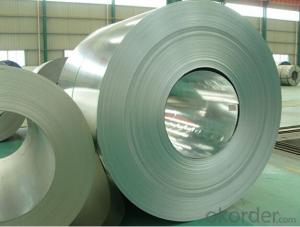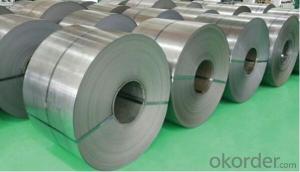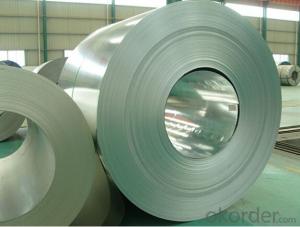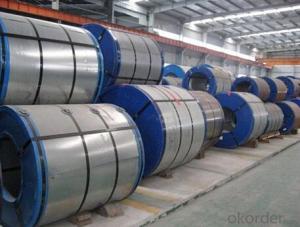Grade JIS G3141-SPEC-SD Galvanized Steel Coil
- Loading Port:
- Tianjin
- Payment Terms:
- TT OR LC
- Min Order Qty:
- 3 m.t.
- Supply Capability:
- 10000 m.t./month
OKorder Service Pledge
OKorder Financial Service
You Might Also Like
Specification
Grade JIS G3141-SPEC-SD Galvanized Steel Coil
Specification of JIS G3141-SPEC-SD Galvanized Steel Coil
1. Galvanized Steel Coil
(1) Width: 600-1570mm
(2) Thickness: 0.13-5.0mm
(3) Grade: JIS G3302-SGCC-SGC570, SGCH (full hard-G550), SGHC-SGH540
EN10346-DX51D+Z, DX53D+Z, S250GD-S550GD
STM A653-CS-B, SS255-SS550
(4) Zinc Coating: Z40g/m2~Z500g/m2 (both side total coating thickness)
2. Galvalume Steel Coil
(1) Width: 600~1500mm
(2) Thickness: 0.15~2.30mm
(3) Grade: JIS G3321-SGLCC, SGLC400-570, (G550)
EN10346-DX51D+AZ, DX53D+AZ, S250-S550
ASTM A792M CS-B, SS255-SS550
(4) AZ Coating: AZ50~AZ185g/m2
3. Prepainted Galvanized Steel Coil (PPGI)
(1) Width: 600~1250mm
(2) Thickness: 0.19~1.50mm
(3) Grade: JIS G3312-CGCC, CGC340-570, (G550)
ASTM A755M CS-B, SS255-SS550
(4) Zinc Coating: Z40g/m2~Z500g/m2 (both side total coating thickness)
4. Prepainted Galvanized Steel Coil (PPGL)
(1) Width: 600~1250mm
(2) Thickness: 0.20~1.50mm
(3) Grade: JIS G3322-CGLCC, CGLC340-570, (G550)
ASTM A755M CS-B, SS255-SS550
(4) AZ Coating: AZ50~AZ185g/m2 (both side total coating thickness)
5. Cold Rolled Steel Coil (Soft) (for further information, pls click the product name)
(1) Width: 600~1570mm
(2) Thickness: 0.13~2.50mm
(3) Grade: JIS G3141-SPCC-SD, SPCD-SD, SPEC-SD
JIS G3135-SPFC 340/390/440
EN10130-DC01, DC03, DC04
SAE1006, SAE1008
ASTM A424-TypeⅡ
6. Cold Rolled Steel Coil (Full Hard) (for further information, pls click the product name)
(1) Width: 600~1570mm
(2) Thickness: 0.13~2.50mm
(3) Grade: JIS G3141-SPCC-1B, SPCC-1D
7. Hot Rolled Steel Coil
(1) Width: 1000~1524mm
(2) Thickness: 1.20~16.5mm, other thickness can be negotiation
(3) Grade: JIS G3101-SS400, JIS G3132-SPHT1/2/3, ASTM A36, Q195, Q235 etc.
Company Introduction of the Grade JIS G3141-SPEC-SD Galvanized Steel Coil
CNBM International Corporation is the most import and export platform of CNBM group(China National Building Material Group Corporation) ,which is a state-owned enterprise, ranked in 270th of Fortune Global 500 in 2015.
With its advantages, CNBM International are mainly concentrate on Cement, Glass, Iron and Steel, Ceramics industries and devotes herself for supplying high quality series of refractories as well as technical consultancies and logistics solution.
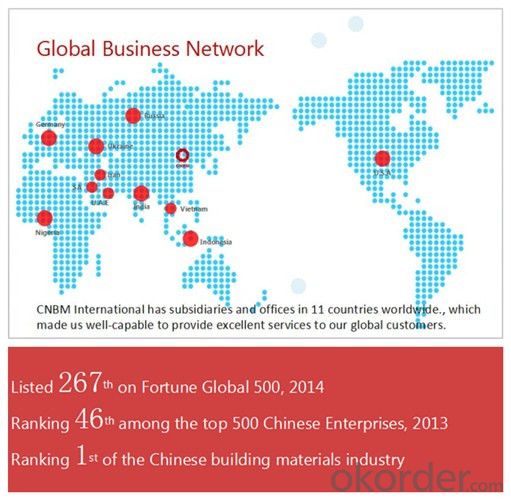
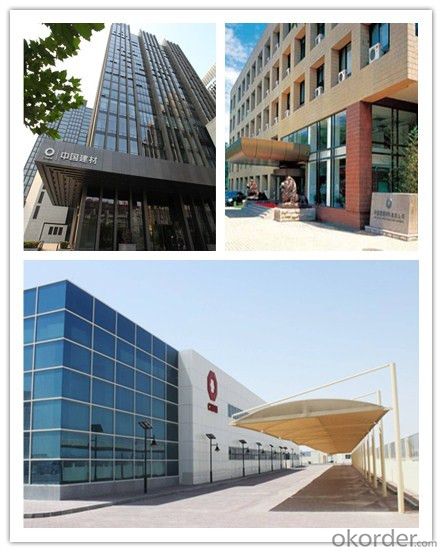
Packaging & Delivery of the Grade JIS G3141-SPEC-SD Galvanized Steel Coil
Packaging Detail | Sea worthy packing /as per customer's packing instruction |
Delivery Detail | 15 ~ 40 days after receiving the deposit |
Products Show:
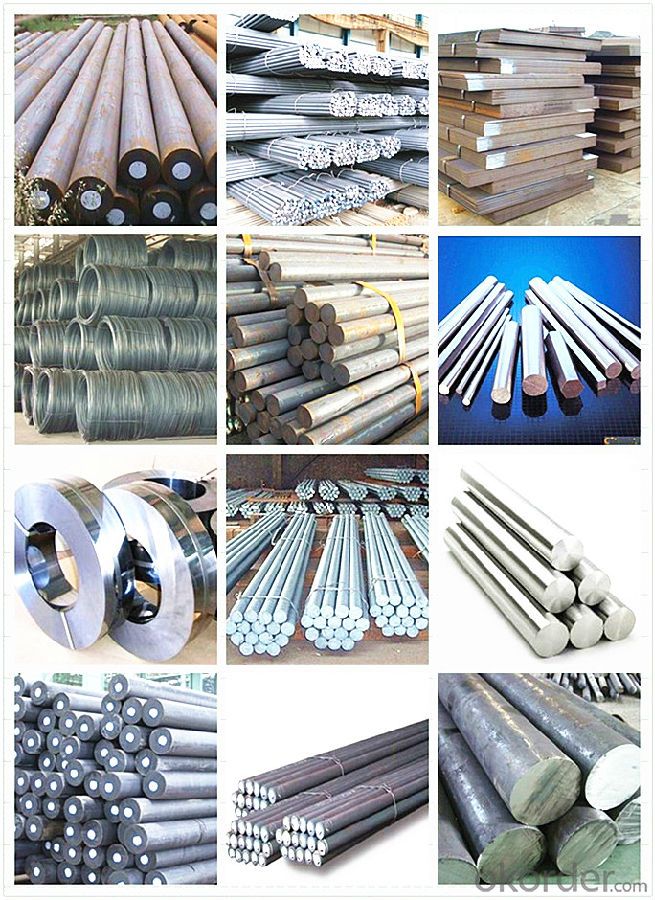
FAQ:
Are you a trading company or manufacturer? | Manufacturer |
What’s the MOQ? | 3 metric ton |
What’s your delivery time? | 15-35 days after downpayment received |
Do you Accept OEM service? | Yes |
what’s your delivery terms? | FOB/CFR/CIF |
What's the Payment Terms? | 30% as deposit,70% before shipment by T/T |
Western Union acceptable for small amount. | |
L/C acceptable for large amount. | |
Scrow ,Paybal,Alipay are also ok | |
Why choose us? | Chose happens because of quality, then price, We can give you both. Additionally, we can also offer professional products inquiry, products knowledge train (for agents), smooth goods delivery, excellent customer solution proposals. |
What's your available port of Shipment? | Main Port, China |
What’s your featured services? | Our service formula: good quality+ good price+ good service=customer's trust
|
Where are your Market? | Covering more than 160 countries in the world |
- Q: What are the environmental considerations of using special steel?
- Special steel production has significant environmental considerations. The extraction and processing of raw materials, such as iron and coal, contribute to deforestation, habitat destruction, and greenhouse gas emissions. Moreover, the high energy requirements during steel production result in carbon dioxide emissions, contributing to climate change. Special steel also often requires the use of alloying elements, such as chromium and nickel, which can lead to toxic waste and pollution if not properly managed. Therefore, careful monitoring and implementation of sustainable practices are crucial to minimize the environmental impact associated with using special steel.
- Q: Can special steel be used for making marine components?
- Yes, special steel can be used for making marine components. Special steel, also known as marine grade steel, is specifically designed to withstand the harsh conditions of marine environments. These environments are exposed to corrosion, high humidity, and saltwater, which can cause regular steel to deteriorate quickly. Marine grade steel is typically made with added alloys, such as nickel, chromium, and molybdenum, which provide excellent corrosion resistance and durability. These alloys help the steel resist the corrosive effects of saltwater and prevent rusting. Additionally, special steel is often coated with protective coatings or treated to further enhance its resistance to corrosion. Marine components made from special steel include ship hulls, propellers, shafts, valves, pipelines, and various structural elements. The use of special steel ensures the longevity and reliability of these components in demanding marine conditions. Furthermore, the strength and toughness of special steel make it suitable for withstanding the high mechanical stresses and impacts experienced at sea. In summary, special steel is an ideal material for making marine components due to its superior corrosion resistance, durability, and strength. It helps to ensure the longevity and reliability of marine structures and equipment in harsh marine environments.
- Q: What are the different methods of controlling the grain size in special steel?
- There are several methods to control the grain size in special steel, aiming to achieve the desired mechanical properties and performance. Some of these methods include: 1. Alloying: By carefully selecting and controlling the composition of alloying elements in the steel, the grain size can be controlled. For example, elements such as niobium, vanadium, and titanium can effectively refine the grain size. 2. Heat treatment: The heat treatment process plays a crucial role in controlling the grain size. Techniques like annealing, normalizing, and quenching can be employed to manipulate the grain size. For instance, slow cooling during annealing promotes the growth of larger grains, while rapid cooling during quenching can lead to smaller grain sizes. 3. Deformation processing: Applying mechanical deformation, such as rolling, forging, or extrusion, can help refine the grain structure. These processes induce strain and promote the formation of smaller and more uniform grains. 4. Grain growth inhibitors: Adding certain elements to the steel, such as aluminum or zirconium, can act as grain growth inhibitors. These elements form fine particles that impede grain growth during heat treatment, resulting in a smaller grain size. 5. Transformation temperature control: By controlling the transformation temperature during heat treatment, the grain size can be manipulated. For example, lowering the austenitizing temperature can produce a finer grain structure in the final product. 6. Rapid solidification: Utilizing techniques like spray forming or rapid quenching can result in an ultrafine-grained microstructure. The rapid cooling prevents grain growth, leading to a fine and homogeneous grain structure. 7. Severe plastic deformation (SPD) techniques: SPD techniques, such as equal channel angular pressing (ECAP) or high-pressure torsion (HPT), can impose significant strain on the material, leading to a refined grain structure. These techniques are typically used for producing ultrafine-grained or nanostructured steels. It is important to note that the choice of the method for controlling grain size in special steel depends on the desired properties, the alloy composition, and the intended application of the final product.
- Q: Can special steel be used for making food processing equipment?
- Food processing equipment can indeed be made using special steel. Known as stainless steel, this type of steel is widely utilized in the food processing industry due to its distinctive characteristics. Stainless steel, being non-reactive, does not interact with food or change its taste, smell, or appearance. Furthermore, it is resistant to corrosion, a crucial feature in safeguarding against contamination and ensuring food safety. Additionally, special steel is long-lasting, easy to clean, and possesses a smooth surface that hinders bacterial growth. These attributes render it an excellent choice for producing food processing equipment such as mixing tanks, conveyors, cutting tools, and storage containers.
- Q: What are the different mining grades of special steel?
- Special steel is a term used to describe steel alloys that are specially designed for applications that require exceptional strength, durability, corrosion resistance, or other unique properties. The mining industry heavily relies on special steel for various components, tools, and equipment used in mining operations. There are several types of special steel grades specifically tailored for mining purposes, each possessing its own distinct properties and characteristics. These grades are typically classified based on their chemical composition, mechanical properties, and intended use in mining applications. Some common examples of special steel grades used in mining are: 1. High-strength Low Alloy (HSLA) Steel: HSLA steel is renowned for its remarkable strength and toughness, making it perfect for heavy-duty mining machinery and equipment. It offers exceptional weldability and corrosion resistance, which is crucial in harsh mining environments. 2. Stainless Steel: Stainless steel is extensively utilized in mining due to its superb resistance to corrosion and ability to withstand high temperatures. It is commonly employed in mining equipment such as pipes, fittings, and tanks, where resistance to corrosion and abrasion is of utmost importance. 3. Tool Steel: Tool steel is specifically engineered for cutting, drilling, and shaping tools used in mining operations. It possesses high hardness, wear resistance, and toughness, making it suitable for demanding applications like drilling bits, hammers, and cutting tools. 4. Wear-resistant Steel: Wear-resistant steel is specially designed to withstand abrasive conditions and minimize wear and tear in mining equipment. It is commonly employed in mining buckets, conveyor belts, and crushers to extend their service life and reduce maintenance. 5. Heat-resistant Steel: Heat-resistant steel is essential for mining applications involving high temperatures, such as smelting and refining processes. It retains its strength and structural integrity even at elevated temperatures, reducing the risk of equipment failure and ensuring operational efficiency. 6. Corrosion-resistant Steel: Corrosion-resistant steel finds extensive use in mining operations where exposure to corrosive substances like acids or seawater is common. It prevents rusting and degradation, thereby prolonging the lifespan of mining equipment and structures. It is important to note that the specific special steel grades used in mining may vary depending on the manufacturer and the intended use. To ensure optimal performance and suitability for mining applications, it is advisable to consult with steel manufacturers or industry experts who can provide guidance on selecting the appropriate grade for specific mining requirements.
- Q: What are the different certifications available for special steel?
- There are several certifications available for special steel, including ISO 9001, ISO 14001, ISO/TS 16949, and AS9100. These certifications ensure that the steel meets specific quality standards, environmental management practices, automotive industry requirements, and aerospace industry standards, respectively.
- Q: How does special steel contribute to the renewable energy sector?
- Special steel plays a crucial role in the renewable energy sector by enabling the construction of highly efficient and durable renewable energy infrastructure. It is used in the manufacturing of wind turbine components, solar panels, and hydroelectric power systems, among others. Its exceptional strength, corrosion resistance, and ability to withstand extreme conditions make it ideal for withstanding harsh weather and environmental factors. Additionally, special steel helps optimize energy conversion and transmission, ultimately improving the overall efficiency and reliability of renewable energy systems.
- Q: Can special steel be used in the food packaging industry?
- Yes, special steel can be used in the food packaging industry. Special steel, such as stainless steel, is commonly used in food processing and packaging due to its resistance to corrosion, durability, and easy cleaning properties. It ensures the hygiene and safety of food products, making it suitable for various applications in the food packaging industry.
- Q: How does special steel perform in heat treatment applications?
- Special steel performs well in heat treatment applications due to its unique composition and properties. It has a high carbon content, which allows it to be hardened and tempered to achieve desired hardness, strength, and wear resistance. The controlled heating and cooling processes during heat treatment enable the transformation of its microstructure, enhancing its mechanical properties. Special steel also exhibits excellent heat resistance, maintaining its strength and toughness even at elevated temperatures. Overall, special steel is highly suitable for heat treatment applications, providing superior performance and durability.
- Q: Can special steel be used in the manufacturing of precision instruments?
- Yes, special steel can be used in the manufacturing of precision instruments. Special steel possesses high strength, durability, and resistance to corrosion, making it suitable for producing components of precision instruments that require high precision and accuracy. Additionally, special steel can be customized to meet specific requirements such as hardness, conductivity, and magnetic properties, further enhancing its suitability for manufacturing precision instruments.
Send your message to us
Grade JIS G3141-SPEC-SD Galvanized Steel Coil
- Loading Port:
- Tianjin
- Payment Terms:
- TT OR LC
- Min Order Qty:
- 3 m.t.
- Supply Capability:
- 10000 m.t./month
OKorder Service Pledge
OKorder Financial Service
Similar products
Hot products
Hot Searches
Related keywords
